Student Profiles
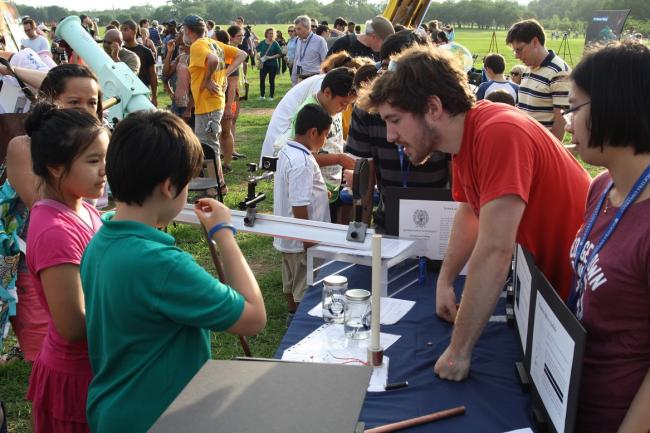
Welcome the Class of 2024!
Grant Davis
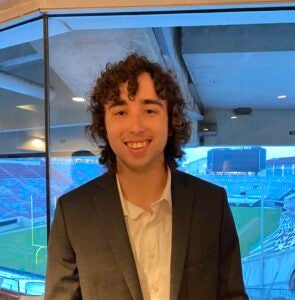
Grant graduated from Virginia Tech in May 2024 with Bachelor’s degrees in physics and mathematics. During his undergraduate career, he conducted research in several subfields of theoretical condensed matter physics. In one project, he used molecular dynamics simulations to model self-assembly phenomena of different biopolymers and then applied unsupervised machine learning algorithms to classify the formation of different structures. In his senior research project, he studied the chaotic dynamics of quantum systems with power law interactions using Monte Carlo simulations. Grant also has an ongoing interest in physics education research and enjoyed his time as an undergraduate learning assistant. He looks forward to exploring similar opportunities at Georgetown. Beyond coursework and research, Grant enjoys hanging out with his dog and playing the guitar.
Bradley Fugetta
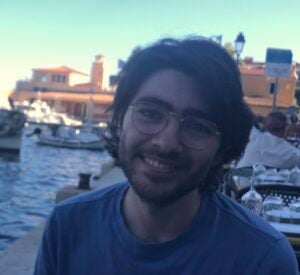
I graduated with a BS in Physics from Georgetown University in 2023. I took a gap year to continue my research at Georgetown and apply to graduate schools. During that time my research focused on Computational and Experimental approaches to measuring the properties of magnetic thin films. Additionally, it involved the use of Machine Learning and micromagnetic simulation to predict the material parameters of experimental data. I look forward to continuing my research as a first year and beyond. Outside of physics, I am interested in Classics and have learned Latin and Greek to satisfy my language requirements in high school and undergraduate studies. In my free time, I enjoy playing video games and baking.
Noah Hann-Deschaine
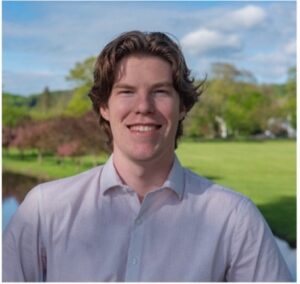
Noah is originally from Wilmington, Delaware, and attended Colgate University as an undergraduate. His early undergraduate research explored the development of biologically derived triboelectric nano-generators (TENGs), and on the application of hydrophobic peptide nanostructures for oil-water separation. His later research focused superconducting devices, uncovering novel phenomena in large circular parallel arrays of Josephson Junctions. Outside of the lab, Noah enjoys reading, playing soccer, and homebrewing.
Garrett Leigh
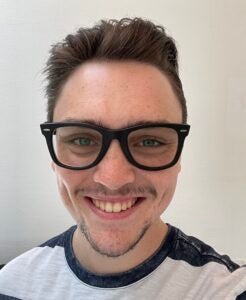
My name is Garrett Leigh and I am 22 years old. I’m from Greenville, North Carolina and I went to undergrad at East Carolina University. I’m a big music nerd and I love nature. In my free time I collect music and music memorabilia (records, cds, etc.) I can noodle on the guitar but it’s generous to call it playing. I look forward to meeting everyone!
Benjamin Russell
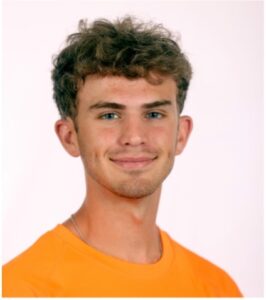
Ben received his B.S in physics and a minor in mathematics in 2023 from the Rochester Institute of Technology (RIT) in Rochester, New York. His past physics research has been in the computational and mathematical modeling of actin filaments and their length dynamics in the flagella of Chlamydomonas and other microorganisms. This research culminated in a senior capstone project titled “Role of Disassembly Mechanisms in Controlling Size of Structures Within Cells” and would lead to continued research in bundled actin filaments and their disassembly mechanisms following graduation with his advisor Dr. Lishibanya Mohapatra. Also while at RIT, Ben conducted research with the mathematics department in modeling and analyzing the co-dynamics of COVID-19 and pneumonia within a population. Outside of academia, Ben enjoys running, playing video games, and watching college sports (especially Iowa football and basketball).
Joshua Sin
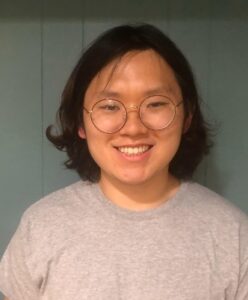
Joshua received his BS in Physics from Drexel University in Pennsylvania with a concentration in computational physics and computational neuroscience. During his time there, he spent a year doing research in PDEs and computational physics, finding equilibrium solutions for forward-forward mean field game problems using RK6 and spectral methods, which culminated in a co-authored paper “Existence and computation of stationary solutions for congestion-type mean field games via bifurcation theory and forward-forward problems” for the American Institute of Mathematical Sciences. During his senior year, he focused on work pertaining to the properties and models of spiking neural networks and their initial configurations, and culminated in an undergrad thesis titled “A Computational Study on The Initialization of SNNs.” At Georgetown, he is interested in exploring computational neuroscience and molecular biophysics. Besides physics, Joshua enjoys traveling, reading, writing, and running.
Benjamin Stallard
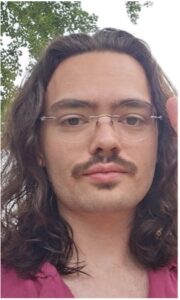
Ben graduated from JMU with a BS in Physics and Quantitative Finance, minoring in Economics, Mathematics, and Computer Science. During his time as an undergraduate, he conducted research in both physics and finance. His physics research involved data analysis of thin shells, writing algorithms to segment the geometric scan data and project these segments onto a spherical manifold for the analysis of Gaussian curvature, and separately work to develop an experimental technique that could directly measure the curvature of the thin shells. His finance research and capstone involved using large-scale patent databases to construct and analyze the network of citations to uncover the underlying value of patents and the economic usefulness of the consolidation-disruption index found in the patent literature. Ben is excited to further explore the connections between the ways we mathematically model financial and physical systems in the ILP program. Aside from physics, Ben enjoys board games, video games, singing a cappella, and running
Khristian Tallent
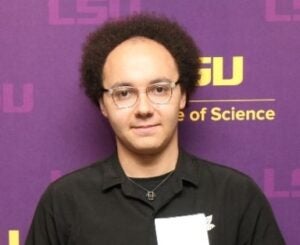
My name is Khristian Tallent, or Kris for short. Recent graduate from Louisiana State University with a B.S in Physics with a minor in math. I have done experimental magnetocaloric physics where we synthesized a compound, and performed X-Ray Diffraction( XRD) to measure the lattice structure constants. The last 2 years have consisted of doing theoretical quantum information (qubit geometries and symmetries) and theoretical condensed matter (Unruh Effect). And just a few days before writing this, we published a paper on the Unruh Effect. I plan on pursuing a theoretical and computational path at Georgetown University as I believe those approaches compliment one another. I spend my free time learning math, cooking up cuisines, relaxing to aromatherapy, gaming, and reading from research papers or books.
Nikhil Vohra
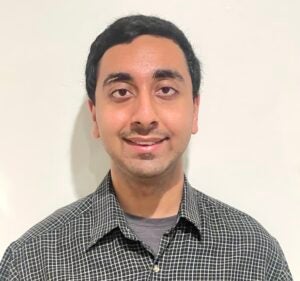
Nikhil graduated from Stony Brook University’s Honors College as a double major in physics and linguistics, participating in computational physics research during his time there. His senior thesis explored interionic arrangement in salt solutions by analyzing the results of simulation data generated using density functional theory (DFT), from which he constructed pair correlation functions to determine particle arrangement and infer larger structure. Nikhil hopes to apply and expand his computational skills in future physics research. In his free time, he enjoys studying languages and listening to music.
Students at various stages of the program
Daniel O’Brien, Class of 2017

The GU Physics department was a perfect fit for me; its interdisciplinary nature affords access to specialists in a range of fields. This expertise, when paired with state-of-the-art experimental facilities like GNuLab and ISM, means I have the ability to conduct advanced technological research. Lastly, our geographical placement in DC both brings in speakers and collaborators from government labs and offers access to plenty of “nature” just a few miles outside of town.
Luogen (Logan) Xu, Class of 2018
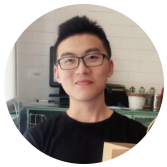
The physics graduate students here at Georgetown are a close-knit community. I get to discuss research ideas with fellow graduate students with great passion and hang out with them outside of work. During stressful times, they were great companies to have intellectually engaging and calming conversations with. The faculty here is welcoming and caring. They do fascinating research and they really love physics. As it turns out, coming here has been one of the best choices I made in my life!
Davonne Henry, Class of 2018
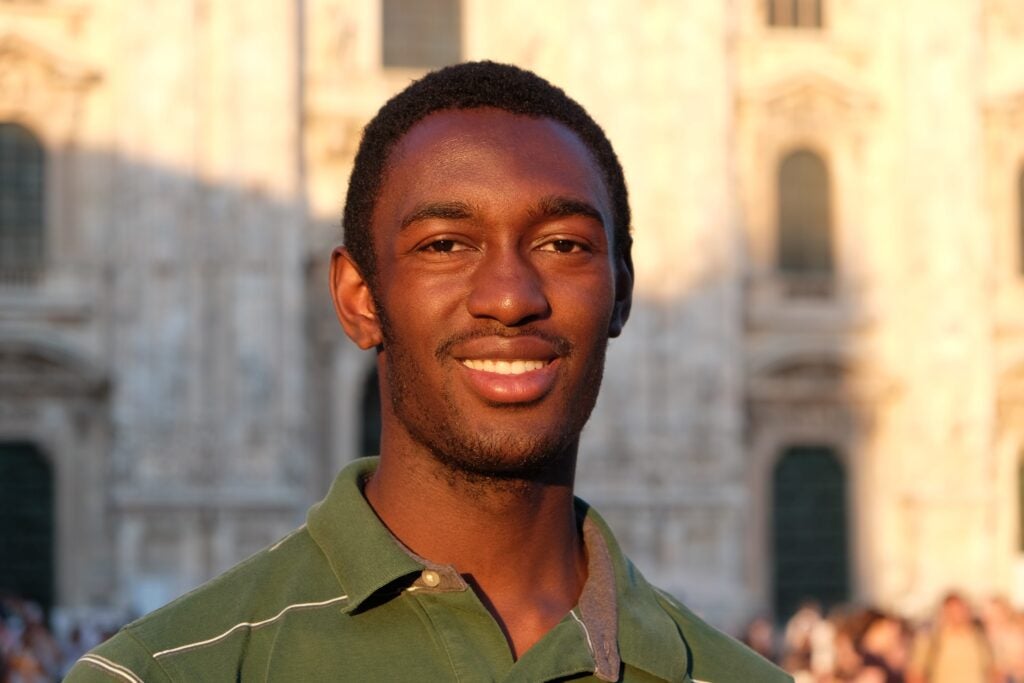
During my undergraduate work, I was not able to explore specialized Physics topics and engage in research as freely as I have been able to do at Georgetown. I have gotten to engage with experimental and theoretical collaborators and I have the opportunity to take advantage of diverse areas of expertise among the faculty and students. Outside of research, I have enjoyed the opportunity to have serious conversations within the department about our responsibility to build a diverse and inclusive STEM community.
